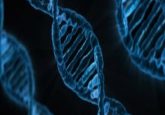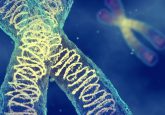Wasp venom-based therapy for breast cancer in development

Wasp venom has provided the basis for a new therapy for breast cancer currently being developed by scientists at the Institute for Biomedical Research (IRB Barcelona; Barcelona, Spain). The therapy is still in the early stages of drug development, but preliminary results concerning its action have recently been published in the Journal of Controlled Release.
Aiming to build a therapy to add to the currently available treatments for breast cancer, many of which can cause serious side effects and to which tumors can become resistant, the team at IRB Barcelona isolated a peptide from wasp venom and investigated its activity against breast cancer cells.
“This peptide has the ability to form pores in the cell plasma membrane, penetrate into the cell and finally, cause its death, either by necrosis or by triggering apoptosis, programmed cell death,” explained Miguel Moreno, lead author of the study from IRB Barcelona, when discussing the work with SINC.
Due to a lack of cell specificity and thus the damage caused to healthy cells, the peptide alone proved too toxic to use. The researchers then turned to developing a transportation method that could deliver the agent directly to the tumor cells, where it could accumulate in a controlled manner.
To achieve this targeted delivery, a system consisting of a decorated carrier polymer with two components was formed in which the cytotoxic peptide from the wasp venom was bound to another peptide and a tumor cell receptor.
When tested in vitro, the experimental therapy was demonstrated to accumulate in tumor cells, while leaving healthy cells unaffected.
The researchers will now follow on from these initially positive results by testing the efficacy of the therapy in vivo using animal models, in the hope that the therapy may in future prove a successful supplementary therapy to those already in existence.
Source: Plataforma SINC news release




